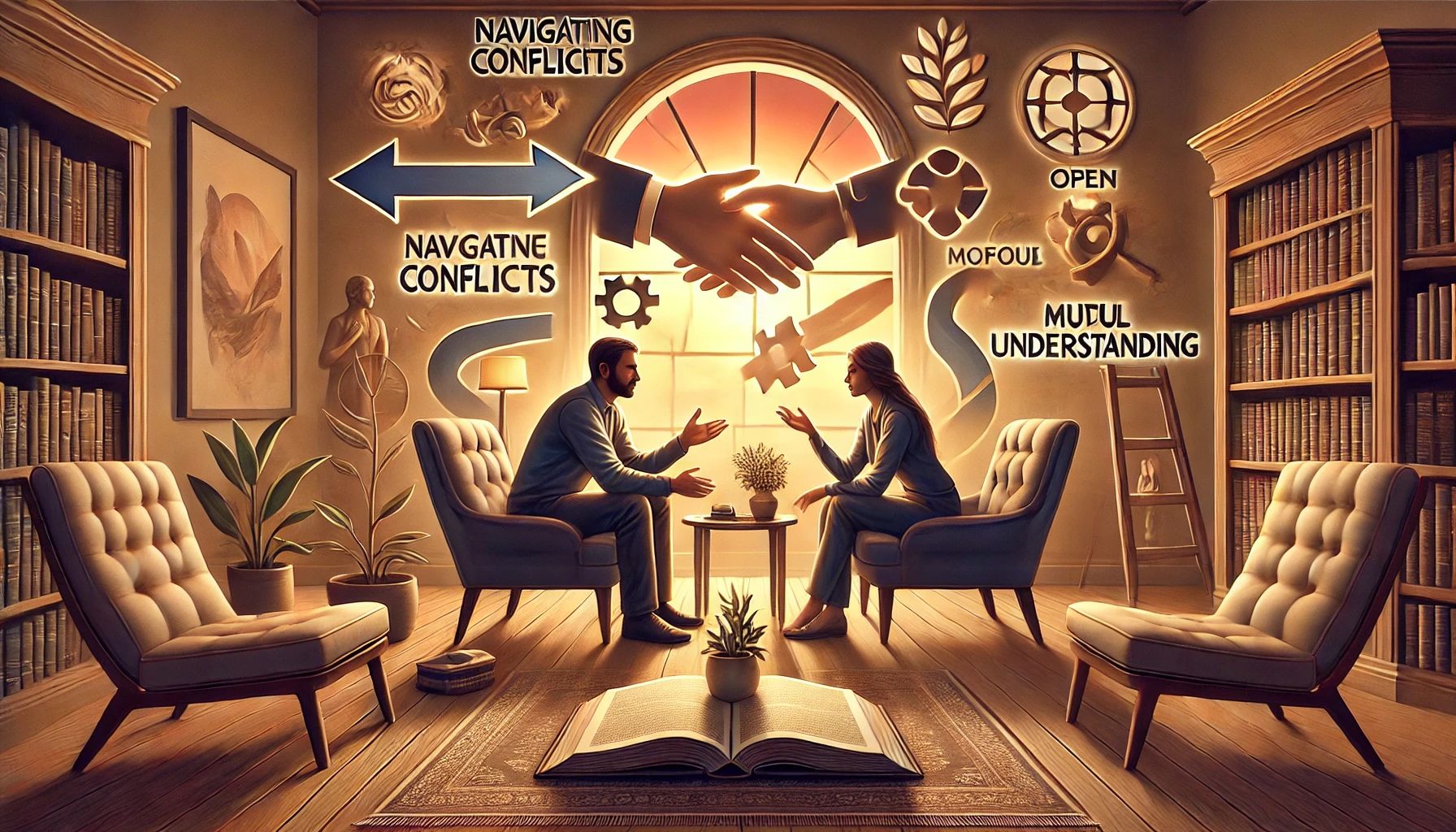
Serious relationships are built on closeness and stability forged through shared challenges, revealing the authenticity of partners beyond superficial facades. Yet, the true test lies not in initiating serious commitments, but in navigating the gravity of maintaining them without overstepping boundaries.
In a previous discussion on diverging interests between partners, the focus was on common scenarios and potential resolutions: escape, conflict, or the challenging yet constructive path of negotiation. However, what if negotiation seems futile? What if your partner resists, and you are reluctant to part ways?
Such impasses are not merely daunting due to their seeming hopelessness, but because they inherently provoke personal growth—a process often accompanied by discomfort.
Let's delve into what this growth entails.
Power Dynamics in Serious Relationships
Most conflicts in close relationships stem not from material possessions, but from how partners respond to each other—be it with sensitivity, warmth, respect, or manipulative control. It's less about the subject of contention and more about the tone and intent behind the discourse.
The core issue often lies in mechanical reactions. For instance, a partner's request to tidy up may trigger not anger over the task itself, but resentment at being dictated to. This subtle distinction highlights underlying tensions that can escalate.
Consider a seemingly "hopeless" situation—common in relationships with partners, children, colleagues, or friends. These junctures, fraught with discomfort, compel decision-making amid fears of humiliation or confrontation.
Consciousness in Conflict Resolution
When dialogue fails and a partner seems deaf to reason, it catalyzes personal growth—an opportunity to introspect. Often, the initial impulse is to shift blame or play the victim, perpetuating the cycle of discord.
Instead, consider a mindful approach: before reacting, anticipate outcomes. This exercise cultivates awareness, revealing that many confrontations are avoidable mechanical responses.
Initially bewildering, this practice eventually fosters dialogue clarity, mitigating futile disputes. It exposes personal biases and resistance to change, underscoring that forcing opinions rarely fosters mutual understanding.
Embracing Change in Relationships
Change, however, is daunting. Few willingly abandon comfort zones or confront self-deceptions. Yet, therein lies growth—shedding illusions to embrace reality's stark truths.
To coerce a partner into conformity is self-delusion. The quest for validation undermines mutual respect, hindering relationship growth. True transformation demands mutual acceptance and patient understanding.
Decisions in relationships are seldom easy. Consequences loom large, deterring change. Yet, each choice offers lessons in maturity and self-awareness. Embracing growth means acknowledging ignorance, embarking on a journey toward clarity.
In conclusion, nurturing serious relationships demands a shift from reactive patterns to mindful engagement. It's about recognizing our blind spots and choosing growth over comfort. Through awareness and empathy, conflicts can foster mutual evolution rather than discord.


